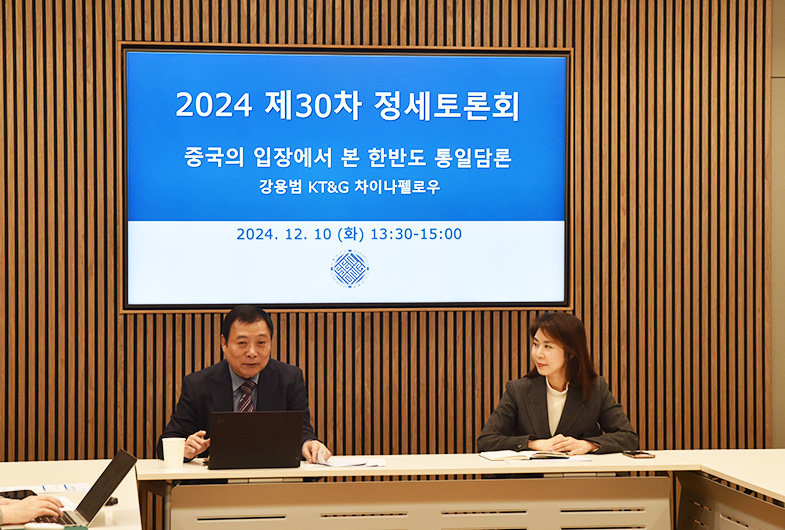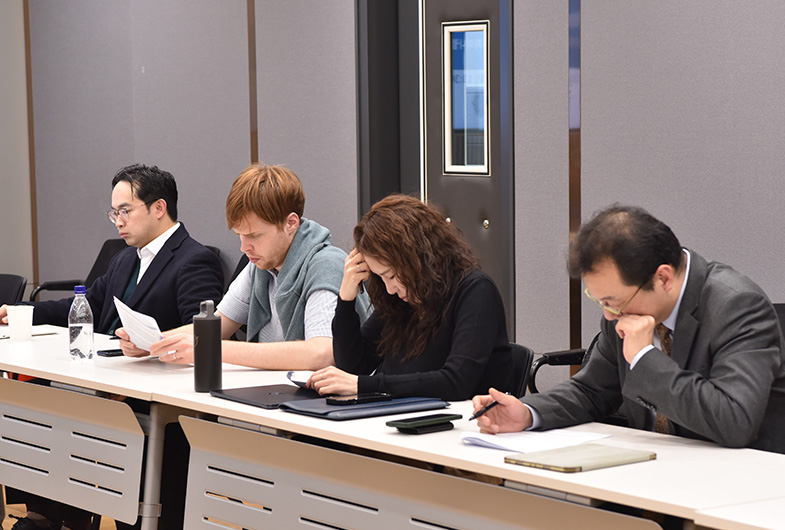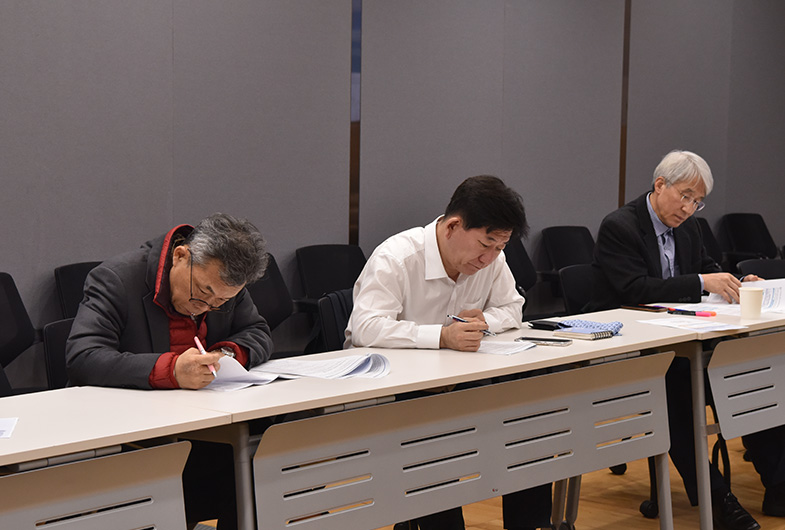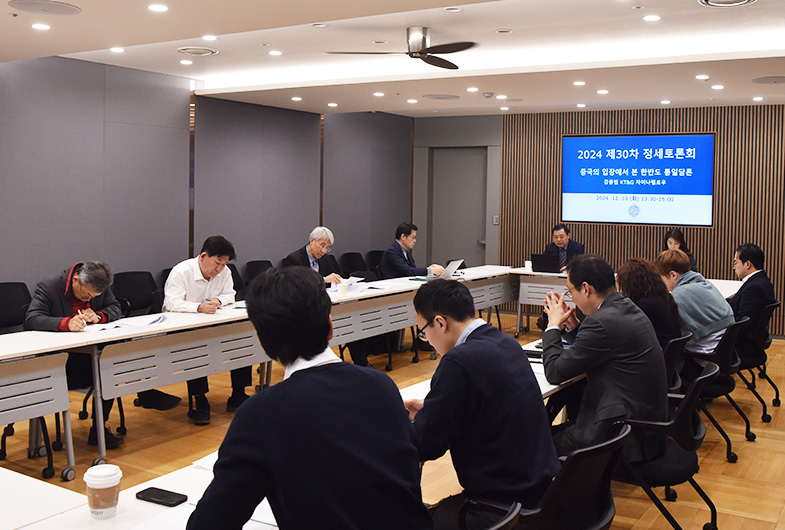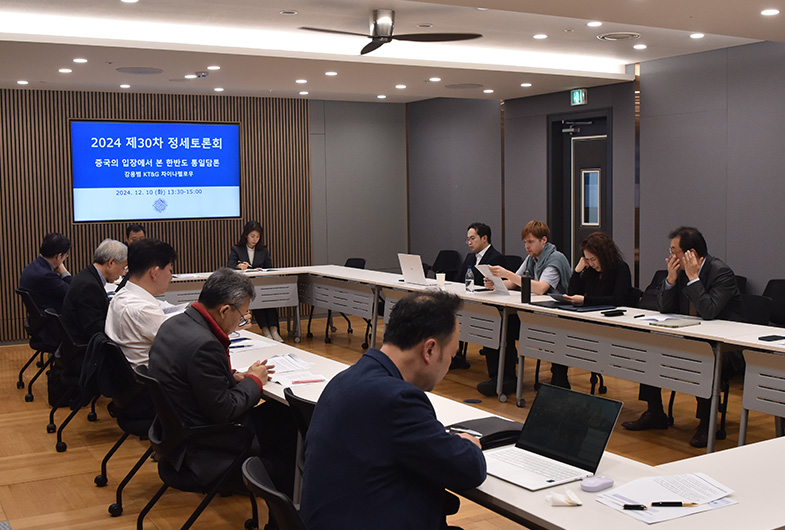On December 10th, Yong-beom Kang, KT&G China Fellow gave a presentation on "The Korean Peninsula Unification Discourse from China's Perspective" at the 30th Colloquium.
The discussion was moderated by Yoon Jung Choi, Vice President of the Sejong Institute.
The unification policies of past South Korean governments have generally focused on key concepts on which both North and South Korea could agree, such as autonomy, peace, and democracy. However, the Yoon Administration's unification policy and discourse emphasize freedom and human rights, which could provoke North Korea.
Domestic ideological conflicts in South Korea also pose structural difficulties in finding a future-oriented alternative for Korean unification. Despite changes in the era and South Korea's enhanced international status, the country's unification discourse seems to be seized in the past, remaining at the level of discussions from 30 years ago.
Over the past 30 years, the Chinese government has consistently emphasized the principle of supporting a "self-determined and peaceful unification" of the Korean Peninsula, stressing that unification is ultimately a matter for the parties on the peninsula, namely North and South Korea. As China, too, is a divided country, there is no reason for it to reject the necessity of Korean unification. However, as inter-Korean relations have become increasingly strained and the prospects for unification have dimmed, the amount of research on the issue of Korean unification in Chinese academic circles has steadily decreased.
Another reason for the decline in discussions on Korean unification within Chinese academia is the structural factors, such as the strong political distrust between North and South Korea, ideological differences, economic disparities, and the differing understandings of neighboring countries regarding Korean unification.
